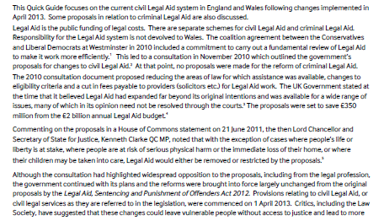Following the UK’s withdrawal from the EU, European citizens living in Wales must apply if they want to stay.
Citizens from EU Member States, Norway, Iceland, Liechtenstein and Switzerland who were living in Wales before 1 January 2021 must apply to the EU Settlement Scheme by Wednesday 30 June 2021 in order to stay. Irish citizens are exempt under separate arrangements.
An individual application must be made for each family member, including children.
The application process: possible outcomes
Applicants to the EU Settlement Scheme will receive a decision on their new status. There are three main outcomes – ‘settled’, ‘pre-settled’ or a refusal. There are other possible outcomes too for withdrawn or void applications.
- To get settled status, an applicant must have lived in the UK for five years with no absence of more than six months, with some exceptions.
- Eligible residents who have lived in the UK for less than five years, but arrived in the UK before 31 December 2020, are granted pre-settled status.
- Both settled and pre-settled citizens can work in the UK, and access healthcare, education, and public funds. They can also travel in and out of the UK.
However, pre-settled citizens cannot bring family members to join them and lose their status if they spend two years outside the UK (this is five years for settled-status holders). In addition, pre-settled status expires after five years and must be converted to settled status via a second application.
How many citizens still need to apply from Wales?
The number of eligible citizens is unknown, meaning nobody knows how many applications there should be. The most recent estimate is that there are 95,000 eligible citizens in Wales.
As of 31 May 2021, 92,700 applications had been received from Wales, up from 83,800 at the end of January. 58% of applicants in Wales have been granted settled status and around 40% have been granted pre-settled status.
Detailed statistics are published quarterly. The latest data shows that:
- Applications from Wales make up 2% of all applications in the UK;
- Applications from Wales are more likely to be granted settled status (58%) compared to England (53%) and Scotland (56%) but not compared to Northern Ireland (61%);
- The vast majority of applicants from Wales are people aged 18-64; and
- A high proportion of applications to the Scheme from people aged 65+ are from Wales.
A new Welsh Government Minister
Whilst immigration policy is a matter reserved to the UK Government, the Welsh Government has regularly set out its position that EU citizens living in Wales are welcome. Jane Hutt MS is the new Minister for Social Justice who is responsible for the Welsh Government’s activities relating to the Scheme in Wales.
On 8 June, the Minister delivered a statement in plenary, which set out her regret that the UK Government has not extended the application deadline to allow more time to reach eligible citizens (as repeatedly requested by the Welsh Government (PDF,616KB)).
The Minister explained that she has written to UK Government Minister, Kevin Foster MP (PDF, 261KB), asking him to ‘at least consider the ongoing impact of the pandemic’. You can read more about the pandemic’s impact on the Scheme in our recent blog post.
‘Pre-settled’ citizens will need to apply again in five years
The Minister expressed concern for Wales’ ‘pre-settled’ citizens who will need to complete a second application to apply for settled status when they become eligible.
They currently make up 39% of processed applications from Wales. At the end of March 2021, there were 32,370 applicants from Wales who had been granted pre-settled status and will need to re-apply. Available data shows the number of applicants granted pre-settled status by local authority area:
|
Local Authority |
Number of ‘pre-settled’ citizens |
|---|---|
|
Blaenau Gwent |
370 |
|
Bridgend |
620 |
|
Caerphilly |
440 |
|
Cardiff |
8,590 |
|
Carmarthenshire |
1,320 |
|
Ceredigion |
1,410 |
|
Conwy |
540 |
|
Denbighshire |
450 |
|
Flintshire |
2,930 |
|
Gwynedd |
1,050 |
|
Isle of Anglesey |
130 |
|
Merthyr Tydfil |
670 |
|
Monmouthshire |
550 |
|
Neath Port Talbot |
530 |
|
Newport |
3,350 |
|
Pembrokeshire |
780 |
|
Powys |
780 |
|
Rhondda Cynon Taf |
1,000 |
|
Swansea |
3,350 |
|
Torfaen |
230 |
|
Vale of Glamorgan |
620 |
|
Wrexham |
2,680 |
Free advice and support
The Welsh Government launched a package of free advice and support in 2019 delivered by a range of organisations. This includes:
- Digital support with applications or help with basic queries about eligibility from Citizens Advice;
- Advice on social welfare issues and workplace rights; and
- Free specialist immigration advice for people with complex needs.
A UK Government toolkit is aimed at giving employers the information needed to support EU citizen employees and their families.
Concerns have been raised by the Welsh Government and the Senedd that eligible citizens may:
- not realise that they need to apply, particularly if they have lived in Wales for many years, or that separate applications are needed for every family member;
- face digital barriers in applying to the digital-only Scheme;
- be considered vulnerable citizens who need additional support to apply, such as children in care;
- face additional barriers as a result of the coronavirus pandemic.
Beyond 30th June 2021
Concerns have been raised for those who miss the deadline, including by the Fifth Senedd’s External Affairs Committee.
UK Government Minister, Kevin Foster MP, told the Senedd Committee (PDF, 154KB) that those who miss the deadline ‘through no fault of their own’ will be given further opportunities to apply. The UK Government has since published guidance (PDF, 123KB) on how late applications should be handled.
Nevertheless, Jane Hutt MS told Kevin Foster MP that ‘this will not be enough for those citizens who are beginning to return to the UK as travel restrictions are eased’. Concerns have been expressed that EU citizens may find themselves living illegally in the UK if they miss the deadline.
Eligible citizens can apply to the Scheme on the UK Government’s website.
Article by Sara Moran and Helen Jones, Senedd Research, Welsh Parliament






